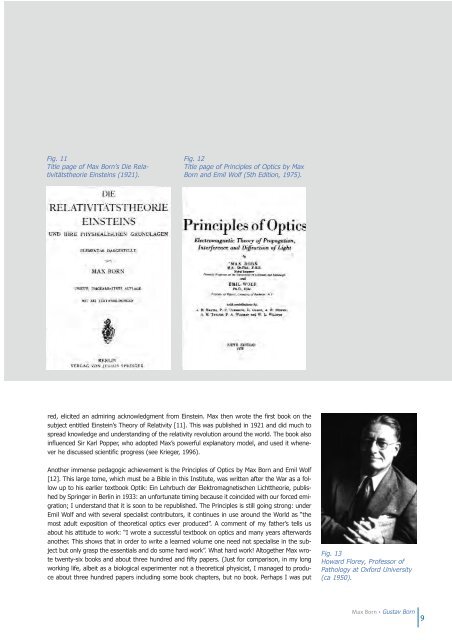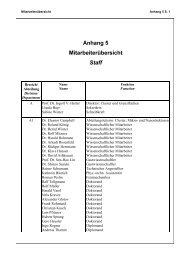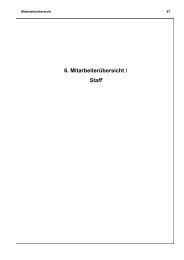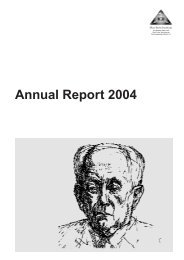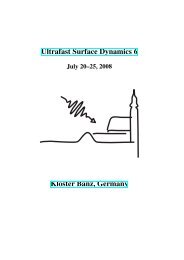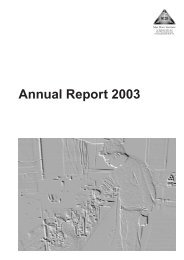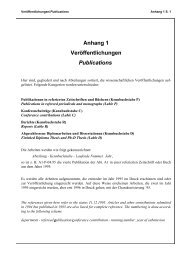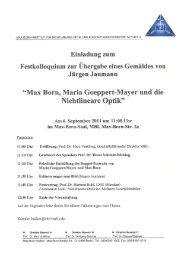Create successful ePaper yourself
Turn your PDF publications into a flip-book with our unique Google optimized e-Paper software.
Fig. 11<br />
Title page of <strong>Max</strong> <strong>Born</strong>’s Die Relativitätstheorie<br />
Einsteins (1921).<br />
Fig. 12<br />
Title page of Principles of Optics by <strong>Max</strong><br />
<strong>Born</strong> and Emil Wolf (5th Edition, 1975).<br />
red, elicited an admiring acknowledgment from Einstein. <strong>Max</strong> then wrote the first book on the<br />
subject entitled Einstein’s Theory of Relativity [11]. This was published in 1921 and did much to<br />
spread knowledge and understanding of the relativity revolution around the world. The book also<br />
influenced Sir Karl Popper, who adopted <strong>Max</strong>’s powerful explanatory model, and used it whenever<br />
he discussed scientific progress (see Krieger, 1996).<br />
Another immense pedagogic achievement is the Principles of Optics by <strong>Max</strong> <strong>Born</strong> and Emil Wolf<br />
[12]. This large tome, which must be a Bible in this <strong>Institut</strong>e, was written after the War as a follow<br />
up to his earlier textbook Optik: Ein Lehrbuch der Elektromagnetischen Lichttheorie, published<br />
by Springer in <strong>Berlin</strong> in 1933: an unfortunate timing because it coincided with our forced emigration;<br />
I understand that it is soon to be republished. The Principles is still going strong: under<br />
Emil Wolf and with several specialist contributors, it continues in use around the World as “the<br />
most adult exposition of theoretical optics ever produced”. A comment of my father’s tells us<br />
about his attitude to work: “I wrote a successful textbook on optics and many years afterwards<br />
another. This shows that in order to write a learned volume one need not specialise in the subject<br />
but only grasp the essentials and do some hard work”. What hard work! Altogether <strong>Max</strong> wrote<br />
twenty-six books and about three hundred and fifty papers. (Just for comparison, in my long<br />
working life, albeit as a biological experimenter not a theoretical physicist, I managed to produce<br />
about three hundred papers including some book chapters, but no book. Perhaps I was put<br />
Fig. 13<br />
Howard Florey, Professor of<br />
Pathology at Oxford University<br />
(ca 1950).<br />
<strong>Max</strong> <strong>Born</strong> • Gustav <strong>Born</strong> 9


